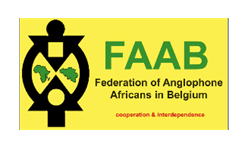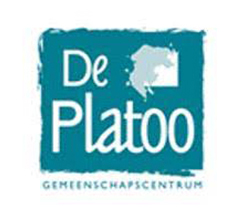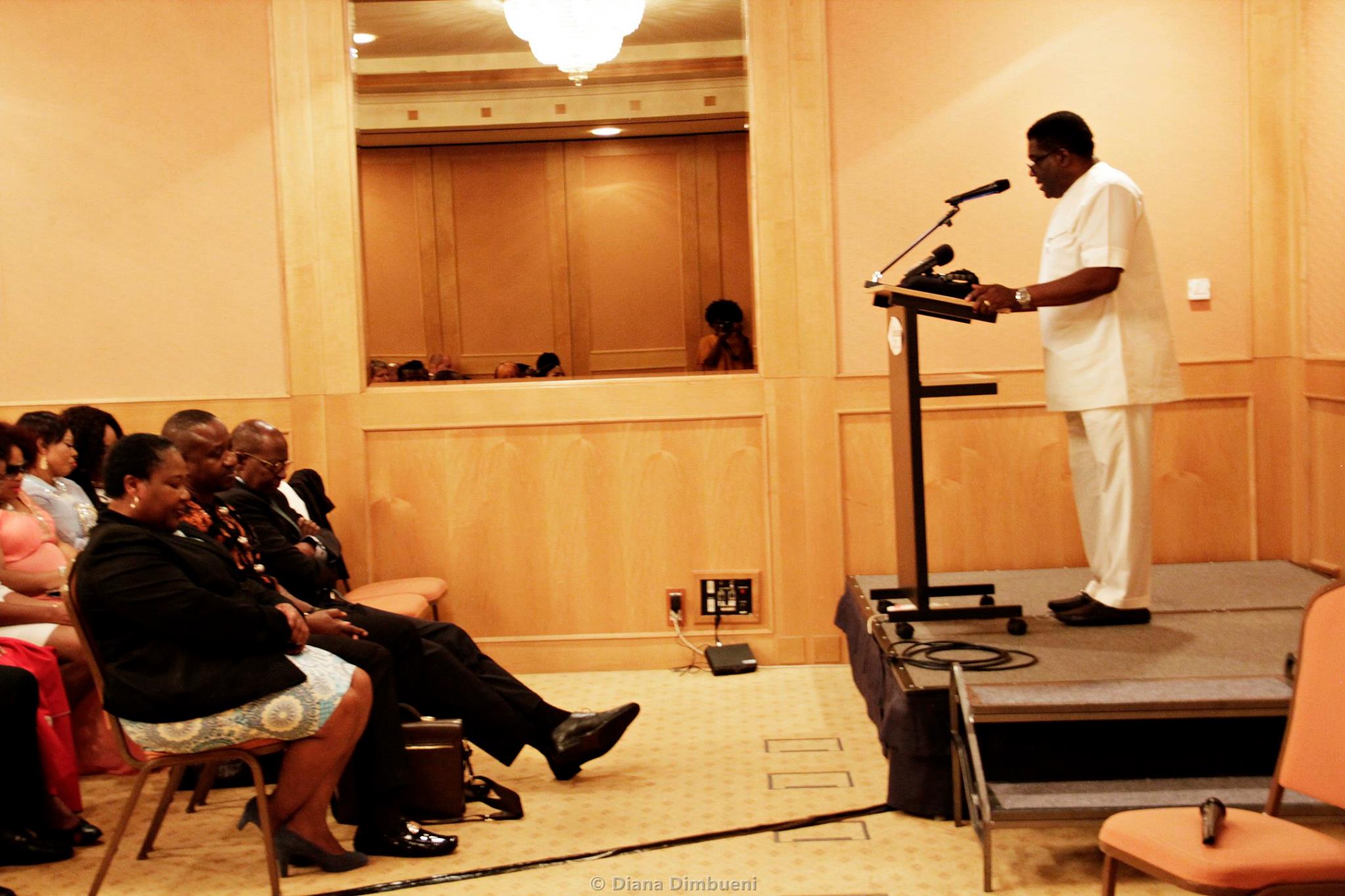
The launching of the new book-Diaspora, Food and Identity organized by The Food Bridge vzw was a success. Friends and colleagues from diverse backgrounds and professions were present to support the founder of The Food Bridge vzw, Dr Maureen Duru. The special guest of honour Owelle Rochas Okorocha, the executive governor of Imo state Nigeria was represented by the deputy governor Prince Eze Madumere.
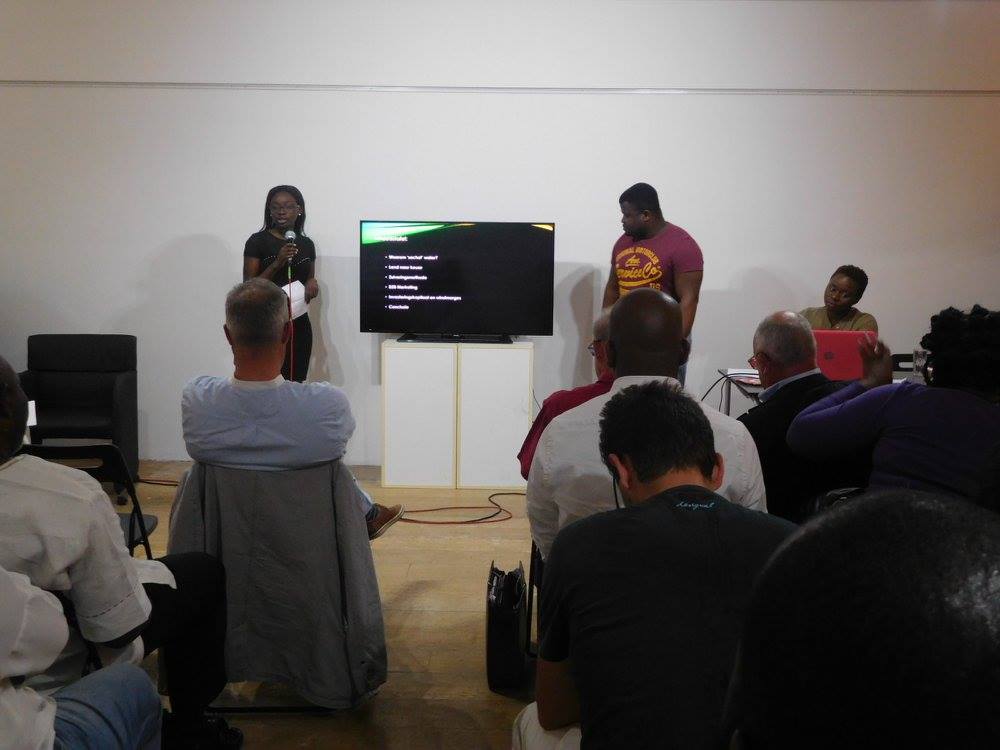
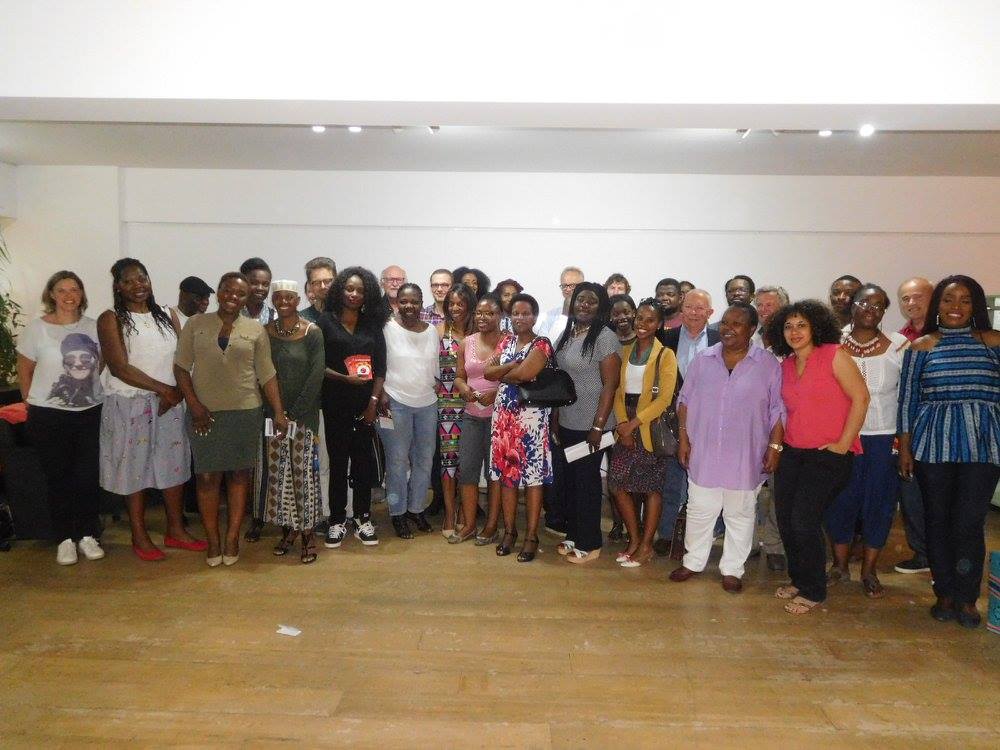
The African Diaspora Projects initiative has kicked off with great success. The first session moderated by Ms Marie-Charlotte Tetepo had ten entrepreneurs out of the 23 entries we got, presenting their projects to the expert team from Entrepreneurs from Entrepreneurs.
The session started with the founder of The Food Bridge vzw Maureen Duru introducing the organization and explaining the motive for this new initiative. The General Manager of Ondernemers voor Ondernemers Mr Bjorn Macauter also introduced the organization and explained the different ways they support social enterprises in the global south. This was followed by a testimonial by Mr Werner Sels, the founder of Entrepreneurs without Border.
Dr Jessica Nanyunja, the CEO and Founder of Harmony Nutrifoods Ltd Uganda, who is a beneficiary of Ondernemers voor Ondernemers spoke about her experience as an entrepreneur. she also spoke about the support she got from Entrepreneurs for Entrepreneurs and how that helped her business.
All the Entrepreneurs that pitched their projects were also asked questions by the experts, who in turn provided them with feedbacks. Four projects were chosen to move on to the next stage, while the rest will be accessed further and offered support as deemed necessary by the experts.
Compendium
Upcoming Events
The Helping Hand Project
In collaboration with Kwabre Ne Sekyere Belgium,Mfantesman vzw,Voice of Women International, Kente FM and other African organizations, we are organizing "The Helping Hand project",is an action started in 2016, aimed at feeding the homeless in the Brussels area. We are in need of volunteers to help with the cooking, packing and distribution of food to the homeless and needy. We are also still looking for sponsors for this project. We do not accept funds but prefer sponsorship in the form of donations of desired food items, food packaging materials. if you are interested in giving a helping hand, contact us on This email address is being protected from spambots. You need JavaScript enabled to view it.







 For the first time, two visionary women have been jointly honored as the 2025 African Diaspora...
For the first time, two visionary women have been jointly honored as the 2025 African Diaspora...  The Collective Action on Forgotten Food is calling on women artists, designers, illustrators...
The Collective Action on Forgotten Food is calling on women artists, designers, illustrators...  The Food Bridge vzw, with the support of its partners, publishes an annual Compendium...
The Food Bridge vzw, with the support of its partners, publishes an annual Compendium...  Diaspora organizations in Belgium are vibrant and diverse—spread across...
Diaspora organizations in Belgium are vibrant and diverse—spread across...  30 years ago in Beijing, women from around the world demanded equality and also made history. The...
30 years ago in Beijing, women from around the world demanded equality and also made history. The...  Registration is still open for the upcoming FAO & ICMPD event on 𝗔𝗴𝗿𝗶𝗳𝗼𝗼𝗱...
Registration is still open for the upcoming FAO & ICMPD event on 𝗔𝗴𝗿𝗶𝗳𝗼𝗼𝗱... 